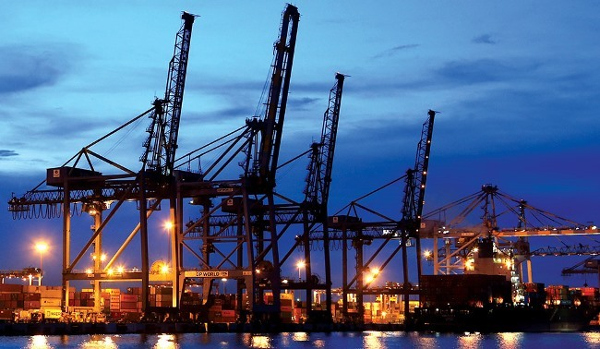KOLKATA: India is looking at a USD 250 billion maritime economy by 2024, which the Indian Coast Guard (ICG) has the responsibility to safeguard, Defence Secretary Ajay Kumar said here on Sunday.
India’s exclusive economic zone in the seas along its 7,500-kilometre coastline comprises over 2 million square kilometres, he said.
“With a target of becoming a USD 5 trillion economy by 2024, we are looking at over USD 250 billion coming from the maritime zone.
“It is this USD 250 billion economy that the ICG has the responsibility to protect and safeguard,” Kumar said after commissioning coast guard ships ‘ICGS Amrit Kaur’ and ‘ICGS Annie Besant’ which will be deployed along the eastern coast.
The maritime economy constitutes nearly five per cent of the world economy, he said.
With the depletion of land resources, economic activities are increasingly getting focussed on the oceans, Kumar said.
Describing the coast guard as the sentinels of the country’s seas, the Defence secretary said it is reassuring to witness the force’s growing strength.
Commissioning the two ICG fast patrol vessels designed and manufactured by the Garden Reach Shipbuilders and Engineers Ltd (GRSE) here, Kumar said India is increasingly becoming self-reliant in the science of shipbuilding.
“Most of our ships today are over 70 per cent indigenous and some of the latest platforms are over 90 per cent indigenous,” he said.
Kumar said that being the fourth largest coast guard in the world, ICG has performed credibly in protecting the country’s maritime zones and also in preventing the plunder of its wealth in the oceans.
The challenges and complexities of maritime security are no less than those of land territories and air space, he said.
Kumar said that the hands of ICG have been further strengthened by providing legal powers for visiting, boarding, searching and seizing vessels in the country’s high seas.
He said the ICG, along with the Indian Navy, has the onerous responsibility of ensuring that maritime zones of India remain safe and secure not only to ensure economic progress but also to counter dynamic security challenges emanating from the sea.
“Incidents like 26/11 Mumbai terror attack have made it incumbent upon all agencies, be it ICG, Navy, marine police and all other stakeholders to synergise resources and also to make greater use of technology in the interest of the country,” he said.
The Defence secretary lauded the ICG for organising awareness and community welfare programmes along the coastline for fishermen and other local residents, making the general population equal stakeholders in security issues.
ICG Director General K Natarajan said that coastal surveillance has substantially increased since 26/11.
“We now have 145 ships, which will go up to 200 vessels by 2025, while 16 new advanced light helicopters will be added (to the arsenal) apart from the 62 surveillance aircraft that are already in service,” Natarajan said.
He said that out of the present inventory, 30 to 40 ships and 10 to 12 aircraft are deployed every day.
The DG said that the ICG has responded to 362 distress calls and saved over 1,000 lives in 2019.
Source: ET
Image Courtesy: MarineInsight
You may also like
-
Trade Connect E-platform For Exports Is Single Window, Fast, Accessible And Transformational: Shri Piyush Goyal
-
Dot Simplifies Approval Processes For Telecom Licenses And Wireless Equipment
-
Coal Production and Supply Trends on Positive Trajectory
-
Union Minister To Release Booklets On Promotion Of Indigenous Species & Conservation Of States Fishes
-
2nd India-Japan Finance Dialogue held in Tokyo on 6th September, 2024
